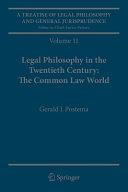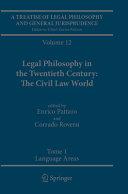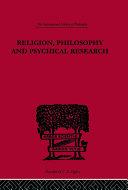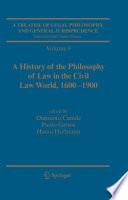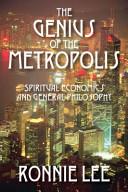Volume 12 Legal Philosophy in the Twentieth Century: The Civil Law World, Tome 1: Language Areas, Tome 2: Main Orientations and Topics
A Treatise of Legal Philosophy and General Jurisprudence is the first-ever multivolume treatment of the issues in legal philosophy and general jurisprudence, from both a theoretical and a historical perspective. The work is aimed at jurists as well as legal and practical philosophers. Edited by the renowned theorist Enrico Pattaro and his team, this book is a classical reference work that would be of great interest to legal and practical philosophers as well as to jurists and legal scholar at all levels. The work is divided in two parts. The theoretical part (published in 2005), consisting of five volumes, covers the main topics of the contemporary debate; the historical part, consisting of six volumes (Volumes 6-8 published in 2007; Volumes 9 and 10, published in 2009; Volume 11 published in 2011 and Volume 12 forthcoming in 2016), accounts for the development of legal thought from ancient Greek times through the twentieth century. Volume 12 Legal Philosophy in the Twentieth Century: The Civil Law World Volume 12 of A Treatise of Legal Philosophy and General Jurisprudence, titled Legal Philosophy in the Twentieth Century: The Civil-Law World, functions as a complement to Gerald Postema’s volume 11 (titled Legal Philosophy in the Twentieth Century: The Common Law World), and it offers the first comprehensive account of the complex development that legal philosophy has undergone in continental Europe and Latin America since 1900. In this volume, leading international scholars from the different language areas making up the civil-law world give an account of the way legal philosophy has evolved in these areas in the 20th century, the outcome being an overall mosaic of civil-law legal philosophy in this arc of time. Further, specialists in the field describe the development that legal philosophy has undergone in the 20th century by focusing on three of its main subjects—namely, legal positivism, natural-law theory, and the theory of legal reasoning—and discussing the different conceptions that have been put forward under these labels. The layout of the volume is meant to frame historical analysis with a view to the contemporary theoretical debate, thus completing the Treatise in keeping with its overall methodological aim, namely, that of combining history and theory as a necessary means by which to provide a comprehensive account of jurisprudential thinking.
-
ISBN 13 : 9789402413182
-
ISBN 10 : 9402413189
-
Judul : A Treatise of Legal Philosophy and General Jurisprudence
-
Sub Judul : Volume 12 Legal Philosophy in the Twentieth Century: The Civil Law World, Tome 1: Language Areas, Tome 2: Main Orientations and Topics
-
Pengarang :
Enrico Pattaro,
Corrado Roversi,
Corrado Roversi,
Corrado Roversi,
Corrado Roversi,
Corrado Roversi,
Corrado Roversi,
Corrado Roversi,
Corrado Roversi,
-
Kategori : Philosophy
-
Penerbit : Springer
-
Bahasa : en
-
Tahun : 2017
-
Halaman : 1912
-
Google Book : http://books.google.co.id/books?id=drD1vwEACAAJ&dq=intitle:General+Philosophy&hl=&source=gbs_api
-
Ketersediaan :
In this volume, leading international scholars from the different language areas making up the civil-law world give an account of the way legal philosophy has evolved in these areas in the 20th century, the outcome being an overall mosaic ...



